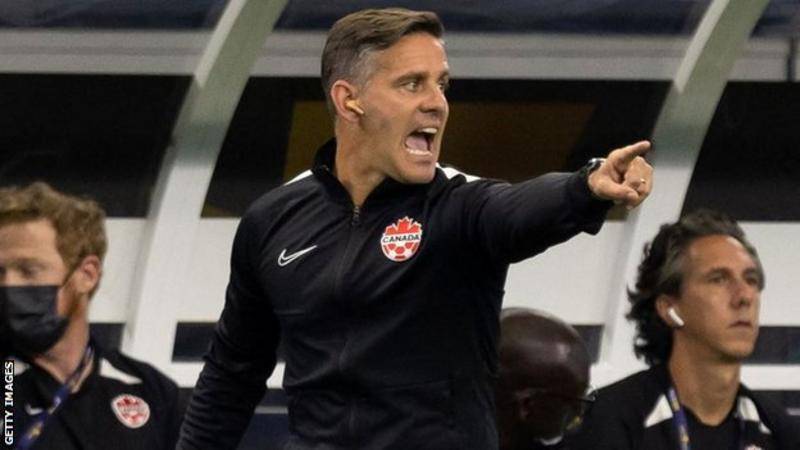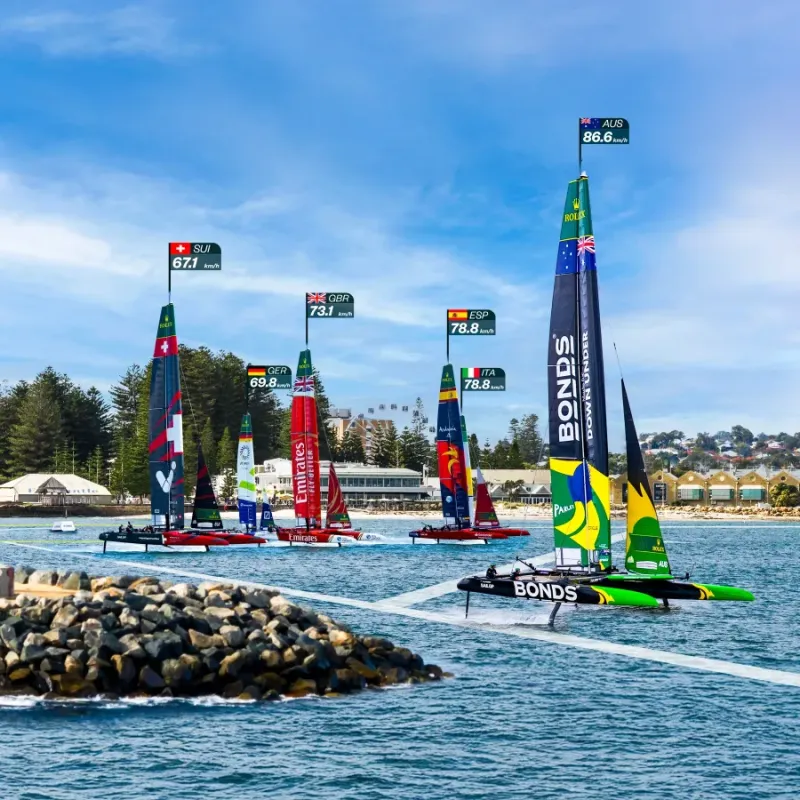In England, the 1986 World Cup is remembered for Diego Maradona, the 'Hand of God,' and the amazing goal he scored in Argentina's quarter-final victory on way to winning the cup.
Canadians have varied memories of that tournament in Mexico.
No points, no goals in three games. At the very least, they arrived.
Until recently, the only time Canada qualified for a World Cup was in 1986.
That all changed on Sunday, as Canada qualified for the 2022 Fifa World Cup with a 4-0 win over Jamaica. And it promises to be a golden era for them, as their standing as co-hosts of the 2026 event is expected - but not yet confirmed - to provide automatic qualifying.
Although Alphonso Davies is the face of Canadian football, Herdman and his side have had to finish qualification without him when he was diagnosed with a heart issue in January.
He is on the mend and will hope to play at the World Cup alongside Lille forward Jonathan David and Besiktas striker Cyle Larin.
Those players are proof of Canada's expanding youth development strength - as well as a growing interest in football in a country that has traditionally focused on more established sports.
"Canada is a hockey country, but football is the most popular sport," Herdman remarked in an interview with BBC Sport in January.
All the kids play football, that is the reality. The country has a very diverse demographic. We have a lot of immigrants, including myself, whose first love is football.
"But they have not had a national team to rally around. The women's team has been uber successful but the men's team hasn't broken that threshold.
"It is a sleeping giant. It is ready to put itself into the sporting consciousness of the genuine Canadian sports fan."
The images of Canada celebrating in the snow after their November victory against Mexico in Edmonton were unforgettable.
Concacaf's arduous qualification process was not set up to aid Herdman's team, as he and his staff had already determined.
The weather is a huge impact, since Canada is frequently pitted against opponents who live in climates that are vastly different from what Canada's players are used to.
"It was 37 degrees in Haiti in June," Herdman remarked. "The rubber on the artificial turf was melting people's footwear."
"There are times in those games when you have the option to check out. The ability to say, "OK, we've got an excuse; it's just too hot." That is something the brain is constantly tinkering with.
So the Mexico game was played in Edmonton, where the temperature during the match was recorded at -9C and the snow fell beforehand - lots of it.
"We could have played in a more hospitable climate, maybe even in a closed, indoor stadium, but we were pretty clear this was a new Canada," said Herdman.
"It is a very resilient nation that has grown up having to play on plastic fields and in cold conditions. We looked at it as an opportunity.
"When people say 'why haven't Canada qualified?' [for so long] you can see the challenges of managing the Concacaf window. Three games in seven days and thousands of miles of travelling to get those games done."
It is more than 20 years since Herdman, born in Consett in County Durham, left his job at Sunderland's academy to take over the New Zealand women's team.
The decision has worked, to the extent that the 46-year-old would be an attractive proposition for a coaching role if he decided to return to his homeland.
It is a conversation he skirts around, secure in the knowledge his contract with the Canadian FA does not expire until after the 2026 World Cup.
"There was a massive motivator at the time, when you haven't made it as a professional footballer," he said. "You always have that chip on your shoulder.
"I didn't play at the highest level and, in my earliest years in coaching, that was relayed to me quite frequently. It develops a mentality of working harder to prove you are at that level.




